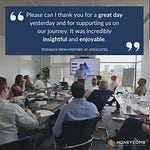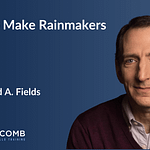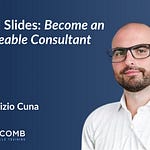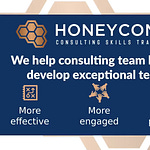When consulting firms look for growth, two strategies dominate: Build your existing team’s ability to sell, or hire a senior ‘rainmaker’ with a stellar reputation and a black book of contacts.
The second option sounds faster, but it’s riskier than most leaders realise.
In most cases, hiring stars is detrimental to performance. They can unsettle teams, stall momentum, and quietly erode culture…all while costing a small fortune.
In this session, Deri Hughes was joined by Daniel Muzio - Professor of Management at The University of York, whose research findings on this topic have recently been featured in Harvard Business Review and The Economist - to explore why senior hires fail, what makes the difference, and how firm leaders can take a more deliberate, evidence-based approach to hiring.
The myth of the star hire
For most consulting leaders, the logic is intuitive: add a top-performing senior person, and your firm gets stronger. You gain immediate access to their skills, experience, market profile, and their ‘black book of contacts’.
But the research tells a different story.
Daniel’s longitudinal study of over 3,000 top-performing lawyers across 100+ firms found that lateral hires were associated with a 9% decline in performance the following year. In fact, firm performance dips for up to 4 years after a star hire, and most firms (and stars) won’t wait that long for results.
This isn’t because the individuals aren’t capable, but because the context into which they are hired isn’t usually set up for success.
Star power is rarely portable
One of the most common failure points is assuming an individual’s past success will automatically translate into future results.
In reality, high performers are often embedded in high-performing systems - supported by tight teams, tuned workflows, generous reputations, or firm-wide positioning. When they move, much of that context doesn’t come with them.
In consulting, this shows up when:
A rainmaker joins a new firm, expecting their clients to follow and they don’t.
A senior hire struggles to land internal referrals, because they’re not yet trusted or understood.
New team dynamics quietly erode confidence and performance, even among existing staff.
The lesson? Before hiring someone new, consider how much of their success is individually driven vs context-dependent, and how replicable that context is in your firm over what time period.
From individual fit to system fit
Most firms vet senior hires on expertise, gravitas, and network. Far fewer assess the likely impact on team morale or firm-wide trust, or consider whether their compensation culture promotes collaboration.
Daniel and Deri explored the emotional side of hiring and the jealousy, defensiveness, or resistance that can arise when a new senior figure lands without internal buy-in. When hires are parachuted in by senior leadership, without team involvement, resistance increases. But when the team leads or contributes to the hiring decision, trust - and success - rises.
It is also clear that the wrong structures can block success. Deri shared examples of “eat-what-you-kill” firms where partner-level compensation was so siloed that internal referrals became a threat rather than a collaboration. New hires were seen as competition, not colleagues.
Ultimately, even the most compelling individual can’t thrive if the system around them isn’t set up for success.
When hiring a star can work
Despite the headline finding, the study also uncovered conditions under which superstar hires can succeed. The best-case scenario?
The hire joins a high-performing team
That team is already rich in other ‘stars’
The team sits within one of the firm’s core areas of strength
The star is hired along with their support team who help create that all-important context for success.
In these situations, the newcomer is absorbed into a strong and confident culture, where others feel secure, generous, and able to collaborate. Importantly, they’re less likely to be perceived as a threat and more likely to benefit from internal referrals, shared routines and onboarding support.
In short, stars don’t turn around struggling teams. But, they can help consolidate existing excellence.
The key takeaway?
The message isn’t “never hire senior people.” But you should “handle with care.”
Senior hires bring disruption. Sometimes that disruption is energising and expansive. Other times it’s corrosive and costly. The outcome depends not just on who you hire, but how, why, and into what.
As Daniel put it:
“Every star hire contains both risk and opportunity. The job of leaders is to tip the balance deliberately towards synergy and away from disruption.”
Thank you for engaging with The Skilled Consultant. If you haven’t yet subscribed, please do so to receive all our articles direct to your inbox.
There are several other ways you can interact with Honeycomb Consulting Skills Training….
Connect with Deri Hughes (Founder & MD) on LinkedIn
Connect with Colin Mann (MD) on LinkedIn
Book a 30 minute intro call with Deri Hughes
Stay informed about our free workshops and webinars - follow Honeycomb on LinkedIn or visit our website.












